Why Study Forensic Science?
Uncover the truth and pursue justice with a degree in forensic science—where science meets investigation.
Forensic science is the use of the physical sciences to analyze physical evidence in criminal investigations. As a forensic science major, you will learn how to handle and process a variety of evidentiary items, from unknown powders and fibers to questioned bloodstains. You will learn about the laws of criminal procedure and the rules of evidence, as well as how to process a crime scene and receive hands-on, cutting edge laboratory skills that incorporate DNA analysis, latent print examination, firearm and tool mark analysis, crime scene investigation, drug analysis, forensic toxicology and more!
What's different about VCU's approach to forensic science?
VCU's Department of Forensic Science is on the leading edge of forensic science education and research and these are the leading reasons why:
Experienced Faculty Across a Variety of Specialties
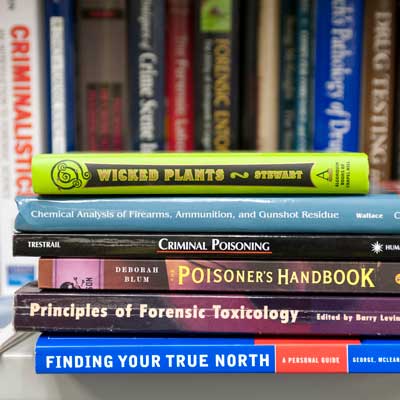
Our faculty are experts in the topics they teach, including forensic biology, forensic chemistry, patterned evidence analysis, entomology, anthropology, trace evidence analysis, microbial forensics, digital evidence analysis and crime scene science. With 11 full-time faculty and a distinguished group of part-time adjunct practitioners, students can be assured of a top-notch forensic science education. Our faculty maintain active research laboratories and collaborations with forensic science laboratories, intelligence agencies and humanitarian organizations across the globe. They are recognized international leaders in their respective fields who are called upon to advise on local, state and federal policy and to serve as impartial witnesses for criminal, medical and historical investigations. Together, their casework experiences and applied research knowledge add value and important context to the department’s classroom and laboratory instruction.
Robust Curricula With Hands-On Learning
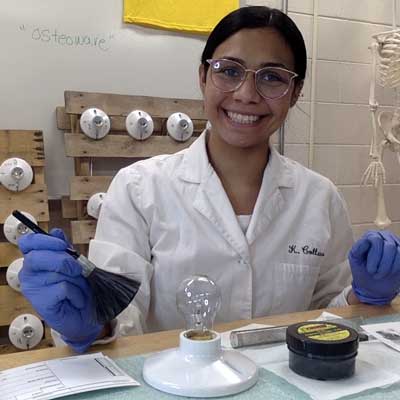
Students aren't just learning from textbooks and lectures in our department. Most forensic science courses feature small class sizes that include active, laboratory-based learning in modern laboratory classrooms directed by current and former forensic science practitioners. This includes:
- Up-to-date instrumentation as used in modern crime laboratories
- New state-of-the-art crime scene laboratory and staging facility
- Technology-oriented education that transfers to multiple industries
- Professional practices topics with career development focus
- Courses that incorporate team-based learning strategies
- Lessons designed to build writing and oral presentation skills
A Variety of Academic Pathways
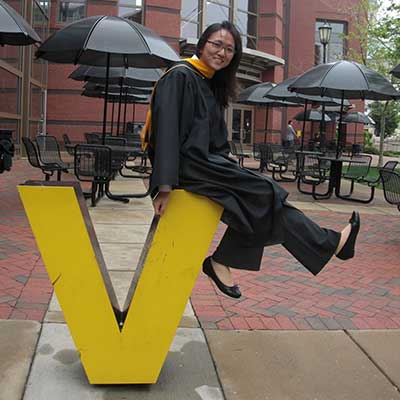
These include:
- Undergraduate (bachelor’s degree) and graduate (master’s degree) programs in forensic science with focused concentration areas
- Accelerated degree program that leads to both a bachelor’s and master’s degree in forensic science
- Accelerated degree program that leads to both a bachelor’s degree in biology and a master’s degree in forensic science
- Opportunity to pursue a Ph.D. with a forensic science faculty member through various VCU programs
A Diverse, Engaged Student Community
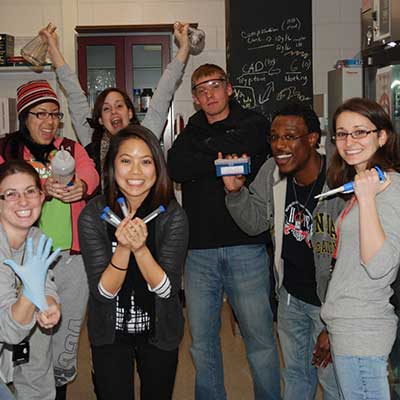
Forensic science students are among the most engaged students on campus. Our majors develop meaningful relationships with their peers, staff and faculty in the department through a variety of fun, energetic opportunities, such as:
- Forensic science student club
- Forensic science graduate student organization
- Delta Delta Epsilon (forensic science honor society)
- Monthly student engagement events
- Weekly forensic science seminar series
A Focus on Transformative Learning Experiences
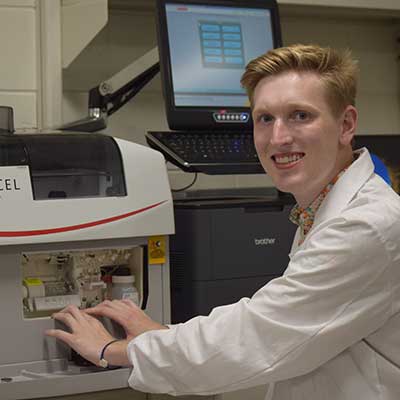
Forensic science students at VCU have many opportunities for real-world, hands-on learning outside of the traditional classroom setting. There are opportunities to:
- Help scientists make discoveries in a lab
- Troubleshoot instrumentation with a faculty member
- Interact with partner forensic science caseworking laboratories
- Network with practitioner alums
- Present data at a regional or national scientific conference
- Assist faculty with real forensic casework and investigations
- Watch faculty testify before legislative bodies
- Teach forensic science at local public schools
- Complete a research project with a faculty member
What can I do with a degree in forensic science?
Employers recognize VCU’s forensic science as a leading producer of highly skilled laboratory professionals. With a degree in forensic science, you'll have a host of marketable technology-oriented, analytical laboratory skills that make you competitive on the national job market. You will be prepared for a versatile cross section of laboratory-based applied science careers including those in local, state and federal government laboratories as well as those in private forensic laboratories, military/defense agencies, the intelligence community, human rights organizations, pharmaceutics and other private industries.
Explore careers for forensic science majors.